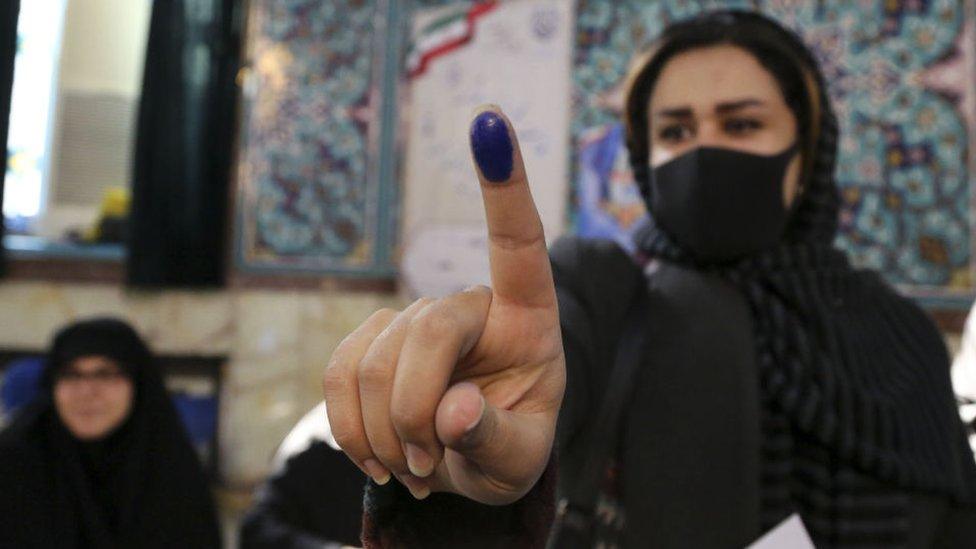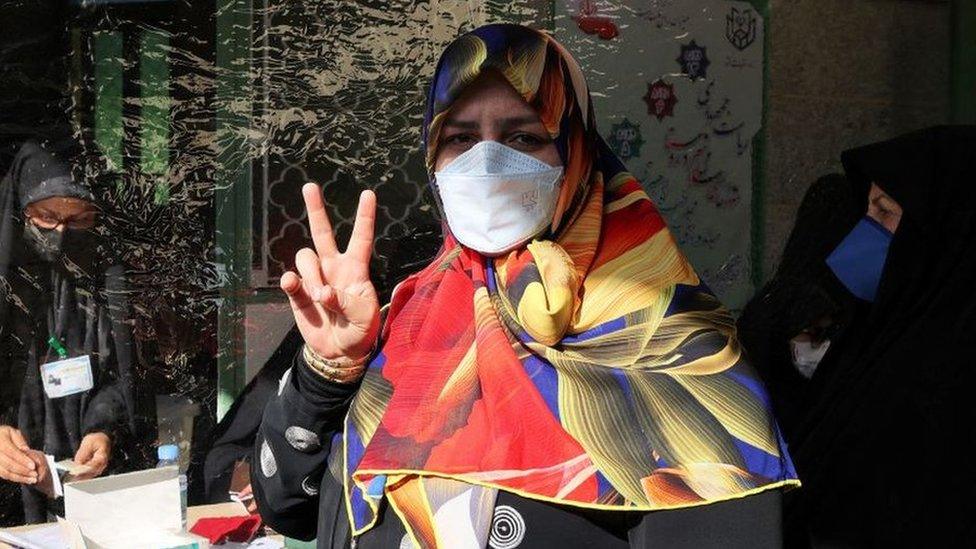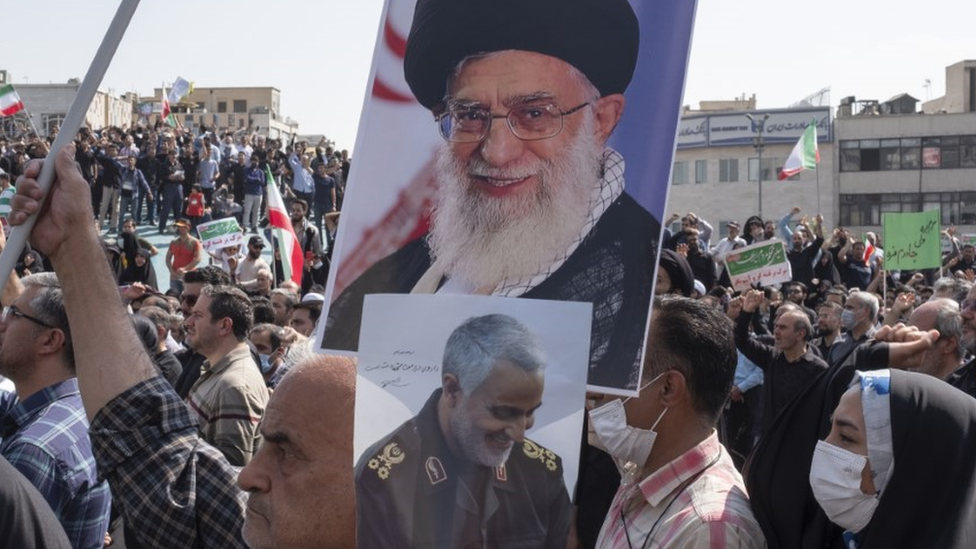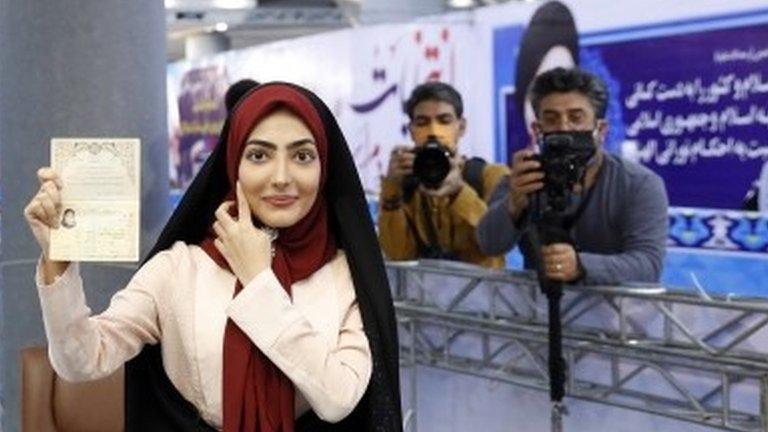Iran election: What to expect from a hardline president
- Published

A low voter turnout will undermine the legitimacy of the new government and the whole ruling system
These elections are seen by many Iranians as a brazen power grab by the hardliners who seem to have decided that they can never win free and fair elections, judging by their past performance.
But a low turnout will undermine the legitimacy of the new government and the whole ruling system. That is why Iranian leaders have been calling on the people to vote in large numbers.
Polling stations are to stay open no less than 17 hours, until midnight (19:30 GMT), with the option of extending it for another two hours, to extract every possible vote.
With these elections, the hardliners will have all the centres of power in their control. But there will be a downside: greater dissatisfaction among a people already in a desperate economic bind, and instability.
If Ebrahim Raisi becomes president, the hardliners will want to establish a puritanical system of Islamic government in the vision of the Supreme Leader, Ayatollah Ali Khamenei. This will bring in more control on social activities, fewer freedoms and jobs for women and tighter restrictions over social media and the press.
Under a hardline presidency, Iran would continue to have a tense relationship with the West.
It would continue to push to extend Shia Islam and project power in the region with the help of the Islamic Revolution Guard Corps (IRGC) - a major armed, political and economic force in Iran - and its local proxies.
Iran would want to cosy up to China in the hope of attracting hundreds of billions of dollars of Chinese investment that might help it out of the deep economic crisis it is currently in.

Iranian election at a glance
Several of the main reformist candidates have been prevented from standing, leaving three conservative hardliners and one moderate in the race
Opinion polls suggest Ebrahim Raisi, a conservative Shia cleric who heads the judiciary, is the clear favourite
Moderate former central bank governor Abdolnasser Hemmati is his main rival
Dissidents and some reformists have called for a boycott
Iranians are discontent at the economic hardship they have faced since the US left a nuclear deal with Iran and reinstated crippling sanctions

The election of a hardline president might also adversely affect the current indirect talks between Iran and the US to return to compliance with the 2015 nuclear agreement and have the key US sanctions lifted. The hardliners were never happy with the deal in the first place.
Iran will remain in the headlines, more than before, for all the wrong reasons.
A low turnout may well mark these elections - not out of apathy of the voters but because of the deliberate decision of many who have boycotted them as a protest at lack of choice.
Iran elections: To vote or not to vote?
Related topics
- Published18 June 2021

- Published1 July 2024

- Published1 June 2021
